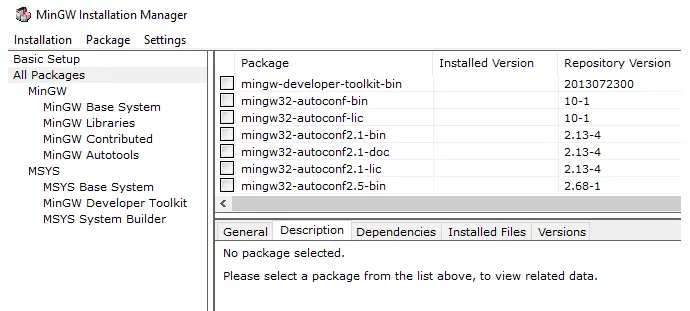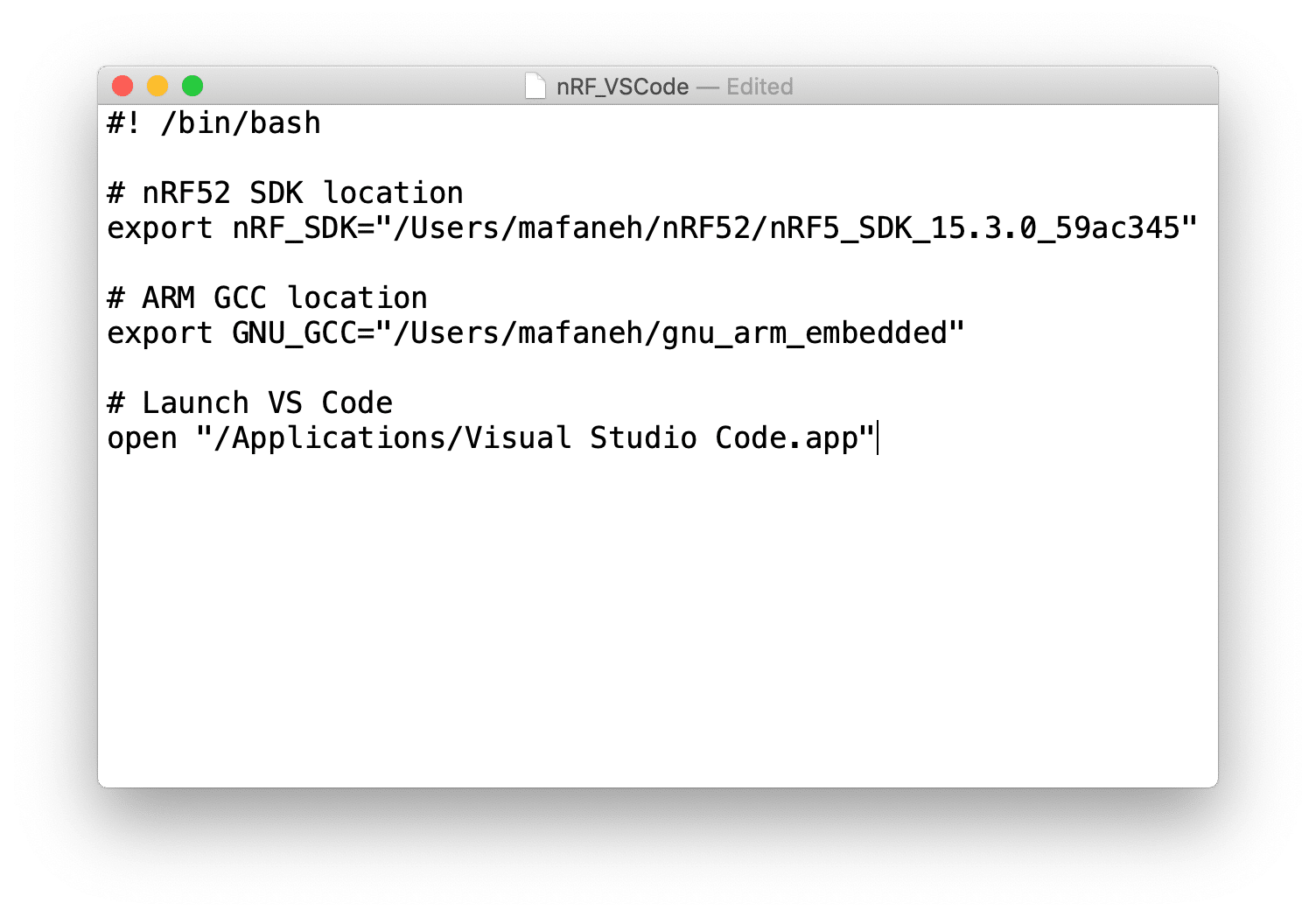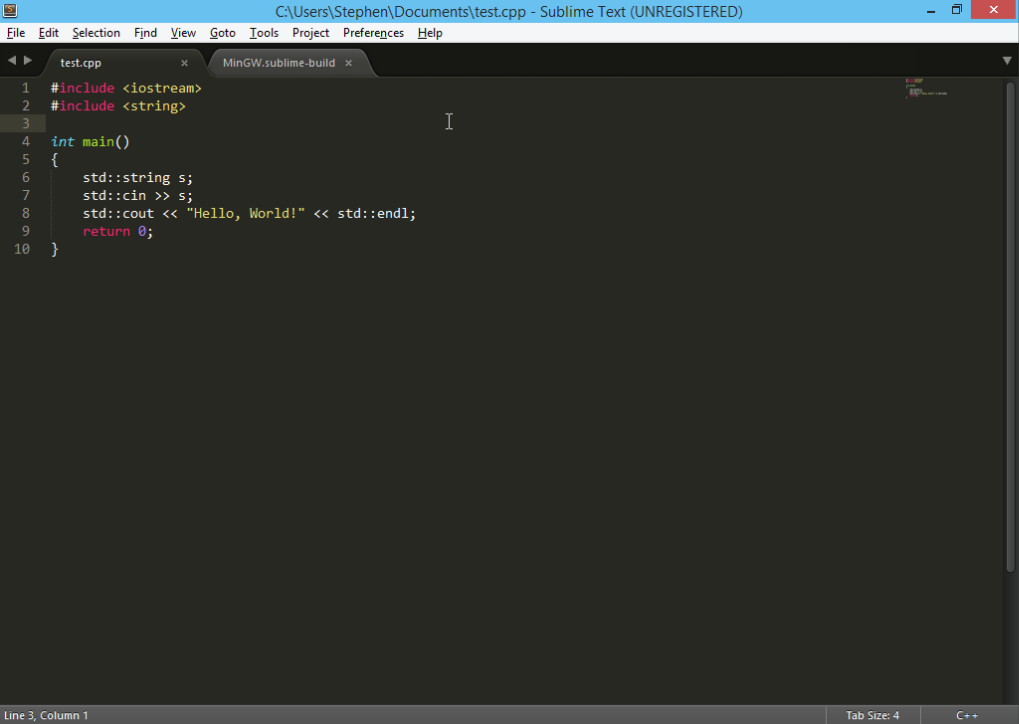Important changes to forums and questions
All forums and questions are now archived. To start a new conversation or read the latest updates go to forums.mbed.com.
Download and Install the Tool Chain. Get a GNU GCC toolchain that compiles to a linux executable. Developer community 2. Search Search Microsoft.com. When you make changes here, VS Code writes them to a file called ccppproperties.json in the.vscode folder. Here, we've changed the Configuration name to GCC, set the Compiler path dropdown to the g compiler, and the IntelliSense mode to match the compiler (gcc-x64) Visual Studio Code places these settings in.vscodeccppproperties.json. If you open that file directly, it should look something like this. This will launch the Visual Studio Installer, which will bring up a dialog showing the available Visual Studio Build Tools workloads. Check the C build tools workload and select Install. Note: You can use the C toolset from Visual Studio Build Tools along with Visual Studio Code to compile, build, and verify any C codebase as long as you.
2 years, 7 months ago.
How can I make 'Visual Studio Code (GCC ARM)' available in online compiler?
The tutorial at https://os.mbed.com/docs/v5.9/tutorials/visual-studio-code.html includes a step for selecting an export toolchain of 'Visual Studio Code (GCC ARM)' with an accompanying image. No such option is available in my compiler. And the tip 'For most targets, you can also export to IAR or ARMCC.' is not particularly helpful as there is no clear way to know which targets might or might not be included in 'most.'

Please advise as to how to make 'Visual Studio Code (GCC ARM)' an option on the export toolchain dropdown for the online compiler.
I should have noted in my initial question that I am trying to export to a 'Multitech mdot.' Choosing this option limits the available 'export toolchain' options to three. When troubleshooting a little further, though, I noticed that different 'export targets' can use many more export toolchains(ie, L-tek FF 1705 has more than 15). So maybe a better (and additional) question to ask is: how can I add 'Visual Studio Code (GCC ARM)' to the options available for exporting to a Multitech Mdot target?
posted by 25 Sep 2018-->vcpkg is a cross-platform command-line package manager for C and C++ libraries. It simplifies the acquisition and installation of third-party libraries on Windows, Linux, and macOS. If your project uses third-party libraries, we recommend that you use vcpkg to install them. vcpkg supports both open-source and proprietary libraries. All libraries in the vcpkg Windows catalog have been tested for compatibility with Visual Studio 2015, Visual Studio 2017, and Visual Studio 2019. Between the Windows and Linux/macOS catalogs, vcpkg now supports thousands of libraries. The C++ community adds more libraries to both catalogs on an ongoing basis.
Gcc Internal
How to get and use vcpkg
Install vcpkg by making a local clone from its GitHub repo https://github.com/Microsoft/vcpkg. Then run the vcpkg-bootstrapper script to set it up. For detailed installation instructions, see Install vcpkg. To integrate vcpkg with your Visual Studio or Visual Studio Code development environment, see Integrate vcpkg. Then, to use vcpkg to install or update a library, see Manage libraries with vcpkg. For more information about vcpkg commands, see vcpkg command-line reference.
How vcpkg works
The vcpkg project is open-source, available on GitHub. A clone or local copy of the vcpkg repo contains the vcpkg executable and a catalog, a list of packages that describe a library and its options. Each package includes one or more ports, information about how to obtain and build the library from sources, or download a binary version, for a specific target environment. When you use vcpkg to install a library, it uses the package and port information to download and produce a local copy of the library in a subdirectory of the vcpkg directory, ready for you to use.

When a library is available in source form, vcpkg downloads sources instead of binaries. It compiles those sources using the most recent version of the C or C++ compiler and tools that it can find. For C++ ABI compatibility, it's important that both your application code and any libraries you use are compiled by the same version of the same compiler. Free portrait editing software for mac. By using vcpkg, you eliminate or at least greatly reduce the potential for mismatched binaries and the problems they can cause. In teams that standardize on a specific version of a compiler, one team member can use vcpkg to download sources and compile a set of binaries. It's inefficient to make everyone on a team download and build common libraries. One team member can use the vcpkg export command to create a common zip file of the binaries and headers, or a NuGet package. Then, it's easy to share it with other team members.
Customize vcpkg instances for different targets
You can clone multiple copies, or instances, of vcpkg on your machine, and customize each one for specific purposes. In each instance, you can install different libraries, or even different versions of libraries than the ones found in the public catalog. Each instance may be set to produce a custom collection of libraries, using your preferred compiler options. Every instance is a self-contained environment with its own copy of vcpkg.exe that operates only on its own hierarchy. vcpkg isn't added to any environment variables, and has no dependency on the Windows Registry or Visual Studio.
You can also create a vcpkg clone that has private libraries in the ports collection. You can add a port that downloads your prebuilt binaries and headers. Then, write a portfile.cmake file that simply copies those files to the preferred location.
The vcpkg folder hierarchy


All vcpkg functionality and data is self-contained in a single directory hierarchy per instance. There are no registry settings or environment variables. You can have any number of instances of vcpkg on a machine, and they won't interfere with each other.
The contents of a vcpkg instance are:
buildtrees- Contains subfolders of sources from which each library is built.docs- documentation and examples.downloads- Cached copies of any downloaded tools or sources. vcpkg searches here first when you run the install command.installed- Contains the headers and binaries for each installed library. When you integrate with Visual Studio, you're essentially telling it add this folder to its search paths.packages- Internal folder for staging between installs.ports- Files that describe each library in the catalog, its version, and where to download it. You can add your own ports if needed.scripts- Scripts (CMake, PowerShell) used by vcpkg.toolsrc- C++ source code for vcpkg and related components.triplets- Contains the settings for each supported target platform (for example, x86-windows or x64-uwp).

Telemetry
Vs Code Gcc
vcpkg collects usage data in order to help us improve your experience. The data collected by Microsoft is anonymous. You can opt-out of telemetry by re-running the bootstrap-vcpkg.bat or bootstrap-vcpkg.sh script using the -disableMetrics option. Or, pass the --disable-metrics option to vcpkg on the command line. You can also disable metrics by setting the VCPKG_DISABLE_METRICS environment variable.
Send feedback about vcpkg
Use the vcpkg contact --survey command to send feedback to Microsoft about vcpkg, including bug reports and suggestions for features. For more information, see vcpkg command-line reference.
See also
Gfortran Is Not Recognized
vcpkg on GitHub
Install vcpkg
Integrate vcpkg
Manage libraries with vcpkg
vcpkg command-line reference
Quick start
Frequently asked questions
